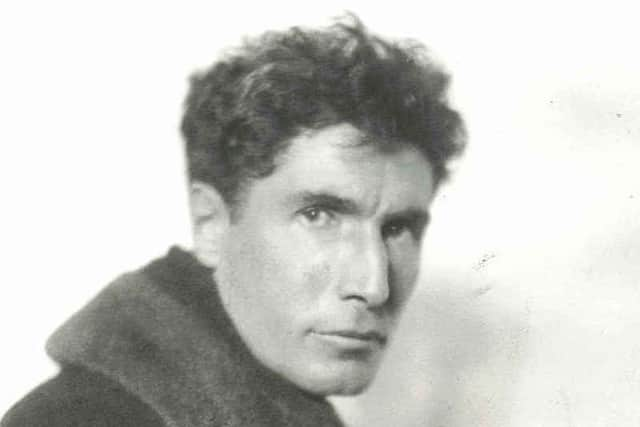Aerial ale, dithyrambic lectures, girls' ankles, and spiritual hyenas


The year: 1894. The place: between Southwick and Hove. A tall, long-coated young man, clutching a thick stick, chanting poetry, strides to work. Every day, the same lines of verse ritually mark his passing of certain features - a chemical factory, a gas tank, a desolate patch behind Hove station where stood 'a most melancholy little ginger-pop booth'.
Newly graduated from Cambridge, John Cowper Powys had taken a teaching post at two girls' schools in Hove run by a Mrs Heatley and a Mrs Walder (neither can now be traced). He lodged four miles away on Southwick seafront, above James Pollard's grocery store at 99 Albion Street, next to the lofty Methodist chapel (all now vanished). From its bow window, he would watch Mr Pollard row out to solicit custom when a big ship moored. He ate bread and milk for breakfast; taught at one school in the morning, the other in the afternoon; and took his lunch - tea, boiled eggs, and jam - in a little bakery in Church Road (possibly Forfars: still there).
Advertisement
Hide AdAdvertisement
Hide AdCrankiest of major novelists, Powys devotes 50 pages of his introspective autobiography to his six months at Southwick, and as much again to his seven years at Court House, Offham, near Lewes. During that time, he taught in Hove, Eastbourne, and elsewhere, he learned the art of 'dithyrambic' public lecturing that would later take him to Europe and America (his very first lecture was given in Hove Town Hall, to a paying audience of three women and a child), he married, and he published his first 'copy-cat' verses.


Always evocative of places, he writes of Brighton's 'old-fashioned alleys and time-mellowed retreats, snugly protected and sequestered', and its winds, as bracing as 'aerial ale'. 'White dust, white glare, white houses, white sea-foam alternated with the rolling bottle-green breakers and with the motley crowds of jostling, lively, good-humoured people, moving from pierhead to pierhead and from brass-band to brass-band.'
Powys bought leatherbound classical folios from William J Smith's emporium in North Street - while one in Eastbourne supplied 'fantastical erotica'. He is frank about the way he would lie on the beach ogling girls' ankles, 'gloating like a satyr, fevered with the heady juices of Cyprian berries', and how he went daily to an end-of-pier pantomime solely to ogle a perfect-ankled 'sylph' in the cast. There was also a 'back-alley retreat' where street girls took him - 'I slept at different times with three sisters', he confesses, one of whom was only 12. ('You like them young,' the madam observed. He would be branded a paedophile now.)
Powys came to know every inch of the 'vast pebbled beach, up which the Channel waves roll with a large primeval heave of deep-sea waters; for Brighton has a more elemental exposure than any other seaside resort'. He knew 'its pier-piles, its stone groins, its shelters, its sea-walls, each spot along its colossal front', he knew its 'sweet-sellers, the cockles-mussels-and-winkles-sellers, the minstrels with blackened faces, the Punch-and-Judy shows, the comic-singers, the preachers, the toy-vendors, the fish-dealers, the photographers, the fruits-and-nuts pedlars, the toy-balloon men, the captains of the yachts Skylark, the fishermen'.
Advertisement
Hide AdAdvertisement
Hide AdAnd he recalls how, moving among these high-season scenes, he would pursue his 'maniacal quest for provocative feminine forms basking in that blazing sunshine and amid the smells of seaweed and fish and tar and sweat and sandwiches and rope and paint and cheap perfumes and foam-drenched petticoats and bilge-water and beer'.
And among the crowds he began at last to notice other men, even more fetishistically weird than himself, 'spiritual hyenas', who 'hunted and stared and eternally stared and hunted'.